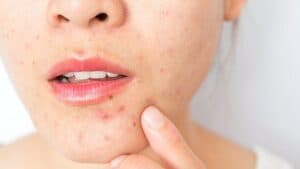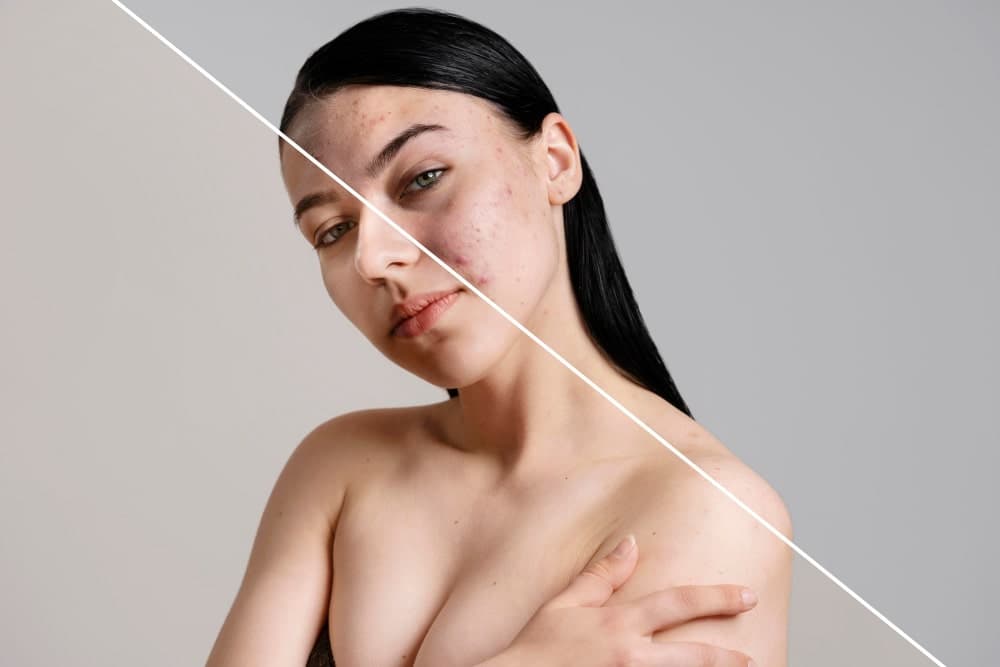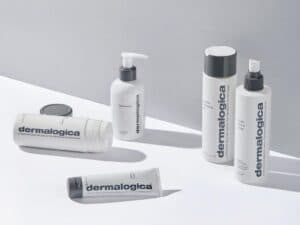Remember those days when you were still about the age of 6-8. Yes, those days when your face was flawless, no spots, just smooth and lovely. You were so in love with your face, your smooth spotless face until puberty came in. It didn’t just come alone it came with some friends.
You began to notice some tiny bumps and you thought “well it’s just some random boil, nothing to worry about”. Till bomb! They increased in size and numbers, ruining your once perfect face. Yes that friend is Acne; the puberty devil.
Why do I call it that? All other friends of puberty, we love. We love the bigger breasts and hips which makes the girls feel more feminine and sexy. We also love the facial hairs and deep voice which also makes the boys feel manly but this friend of puberty, Acne, is hated by both genders.
What is Acne?
According to the Oxford dictionary, Acne is a skin condition common among young people that produces many pimples, especially on the face and neck.
The hair follicles on the skin are associated and connected to the sebaceous glands. The sebaceous gland in the skin produces sebum (oils) which helps to keep the skin moisturized. The hair pores can become clogged when there is an increase in secretion of sebum, excess dirt or dead skin cells. This leads to Acne.
Types of acne
Black heads: These are tiny dark open spots on the face. This is caused by bacteria and dead skin cells buildup.
White heads: These are small bumps popping out of your skin. This occurs when the clogged pores remain closed with excess oil and dead skin cells. They have white tops like boils.
Papules: These are small red lumps under the skin usually caused by bacteria and dead skin cells. They don’t have white tops and are very sensitive to touch.
Nodules: They look like white heads but are a lot bigger and filled with yellow or white pus. They are mostly caused by infected pore or hormonal changes.
Cysts: This is a severe form of acne.They are large pus filled bumps. They are very painful to touch and can cause obvious facial scars if not handled properly.
Causes of Acne

There are different causes, ranging from our diet to hormones and even our lifestyle.
The acne on different parts of our face tells us what we are actually not doing right.
1. Hairline:
- Clogging of hair products
2. Forehead:
- Stress
- Digestive problems
- Poor diet
- Clogging of hair products
3. Eyebrows:
- Stress
- Ingrown hair
- Poor diet
4. Nose:
- Excess sebum productions 5. Ears:
- Hormonal imbalance
- Dehydration
- Buildup of bacteria
6. Cheeks:
- Stress
- Bacteria from cell phone
- Poor detoxification
- Dirty pillows
- Indigestion
- Overfeeding
7. Chin:
- Poor diet
- Hormonal Imbalance
- Dehydration
8. Jawline
- Hormonal Imbalance
- Poor diet
9. Neck:
- Hormonal imbalance
- Poor diet
- Hormonal imbalance
How to control and treat acne
Dermalogica facials:
These are skin treatments carefully tailored to your specific skin needs. They are sets of treatments given to a person using the best skin products to take care of their skin problems.
Nooora has helped so many clients suffering from different types of acne with our professional range of Dermalogica facials. We render you these amazing services in the comfort of your home. All you need to do is book us today and we will give you the best facial pampering ever.
9 basic everyday tips for controlling acne
There are pretty good ways that you can try to reduce your acne.
1. Exercising regularly: Exercises like jump ropes and running, cause you to sweat. Sweating is a good way of unblocking clogged pores. A cool shower after exercising not only washes the dirt off but is also refreshing.
2. Drink a lot of water: Staying hydrated at all times helps to maintain hormonal balance. Hormonal imbalance is the major cause of acne in most people. Drinking a lot of water is also good for the kidneys.
3. Wash your pillowcases and bedspread regularly.
4. Avoid bacteria from your cell phones by using an earpiece while answering calls and also cleaning your phone regularly with wipes.
5. Don’t pop your pimples(please don’t).
6. Avoid touching your face with your dirty hands.
7. Avoid foods rich in dairy products
8. Eat fresh fruits and vegetables
9. Use good skin care products containing salicylic acid, Azelaic acid, benzoyl peroxide and Alpha-hydroxy acids.
In conclusion
Your skin can be flawless again. Acne can be treated and controlled, you just need to eat well and maintain good personal hygiene. Having a good skin care routine with right products and basic facial treatments can also go a long way to ensure your skin is healthy and acne free.












